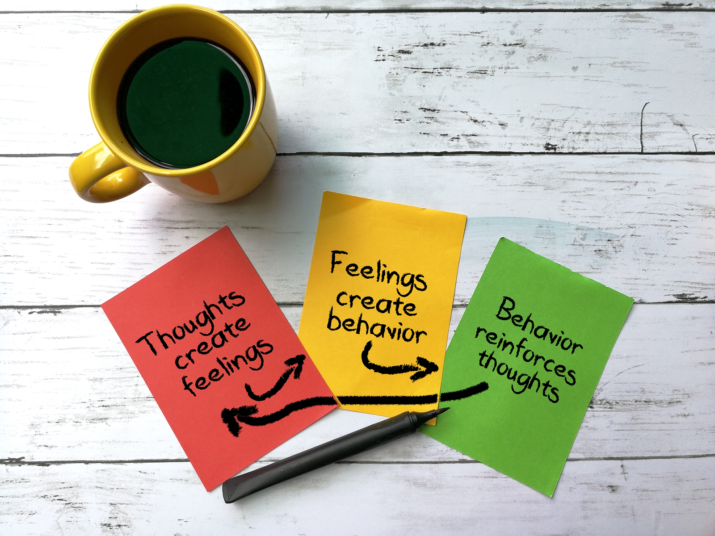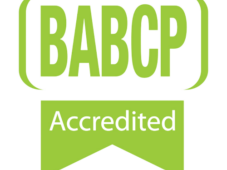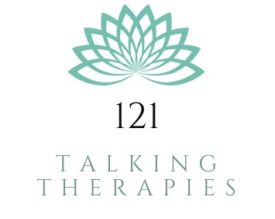Cognitive Behaviour Therapy
There are quite a lot of technical terms to unpack with therapy. In this section, I'll aim to make the information clear so you can have the best chance at making an informed decision.

CBT - What is it?
Cognitive Behaviour Therapy
Cognitive behavioural therapy (CBT) is a talking therapy based on the theory that thoughts, feelings, behaviours and how our body feels are all connected.
If we change one of these we can alter the others.
When people feel worried or distressed we often fall into patterns of thinking and responding which can worsen how we feel. CBT works to help us notice and change problematic thinking styles or behaviour patterns so we can feel better.
CBT has lots of strategies that can help you in the here and now.
CBT: How does it work?
CBT has a good evidence base for a wide range of mental health problems in adults, older adults, children and young people. This research has been carefully reviewed by the National Institute for Health and Clinical Excellence (NICE), who provide independent, evidence-based guidance for the NHS on the most effective ways to treat disease and ill health.
CBT is not a quick fix – it involves hard work during and between sessions e.g. keeping track of what you are thinking, feeling and doing, or trying out new ways of thinking or acting. Your therapist will not make decisions for you. They will help you decide what difficulties you want to work on in order to help you improve your situation. Your therapist will be able to advise you on how to continue using CBT techniques in your daily life after your treatment ends.
What can CBT help with?
NICE recommends CBT in the treatment of the following conditions:
- Anxiety disorders (including panic attacks and post-traumatic stress disorder)
- Depression
- Obsessive Compulsive Disorder (OCD)
- Schizophrenia and psychosis
- Bipolar disorder
There is also good evidence that CBT is helpful in treating many other conditions, including:
- Chronic fatigue
- Chronic pain
- Physical symptoms without a medical diagnosis
- Sleep difficulties
- Anger management
CBT can be used if you are on medication which has been prescribed by your GP. You can also use CBT on its own. This will depend on the difficulty you want help with.
How many sessions will I need
CBT can be offered in individual sessions with a therapist or as part of a group. The number of sessions you need depends on the difficulty you need help with. This will usually be between six and twenty sessions, typically of an hour long. You and your therapist will discuss your specific difficulties and set goals for you to achieve.


The Heritage Wellington Mills, 64 Plover Rd, Lindley, Huddersfield HD3 3HR
